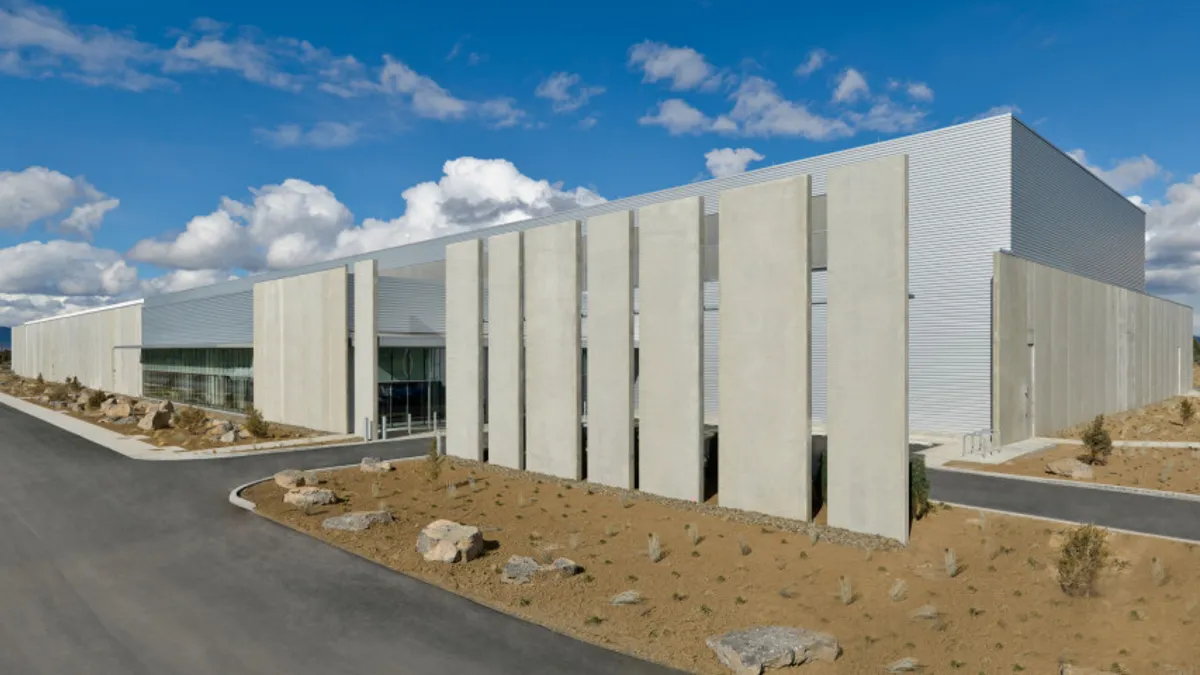The ever-increasing number of connected devices and the need to store all the resulting data has led to a rise in U.S. data center construction that shows no signs of slowing down.
Apple recently announced that it would invest $10 billion in data centers in the next five years — a move that puts it at the forefront of investment in such projects but certainly not on its own. In fact, according to a recent Insight Partners report, the value of the international data center construction market was $43.7 billion in 2017, and, at a compound annual growth rate of 10.2%, is expected to be $92.9 billion in 2025.
The data centers being built fall mostly into two categories — those that will serve only the needs of huge, data-heavy companies like Google and Facebook and those being built for collocation firms like CyrusOne. Both types of centers include those classified as “hyperscale,” which are made flexible enough through energy efficiencies and other optimizations to be able to expand and meet demands of big data, cloud computing and enterprise customers.
So while Amazon and high-tech cohorts like Apple build these facilities for their own exclusive use, collocation data centers provide server space, bandwidth and equipment for multiple companies under one roof.
According to Pat Lynch, senior managing director for CBRE's data center solutions division, there are relatively few locations in competition for one of these facilities. There aren’t many areas of the country, he said, that can offer the winning combination of low power and land costs, plus the incentives — i.e. property tax breaks and other perks — that attract big players in the space.
Facebook, for example, is building a $750 million data center in Huntsville, Alabama, and will receive a $6.6 million incentive package from local agencies in return, including $2 million in waived permit fees and $4.6 million of infrastructure work around the new data center.
Another key to successful recruitment of a data center, he said, is a solid partnership with the local power company, which must be prepared to make a major investment in infrastructure to meet future energy needs.
For instance, the Public Service Co. of New Mexico is investing approximately $45 million in the construction of three new solar plants that will power Facebook’s Los Lunas data center, which will be tripled in size thanks to a $1 billion expansion.
But, Lynch said, it is not out of the realm of possibility that a company that normally builds its own hyperscale data centers would lease space instead if it needed to ramp up operations quickly. This might also be the case if a company wanted to move part of its operations to a pricey area like Silicon Valley or Northern Virginia, where it not only would pay a premium for land but where land availability is increasingly limited. In those cases, he said, it might be "easier, quicker and more efficient to lease what they need.”
Construction spreading nationwide
Regardless, data centers are popping up all around the country.
Apple’s massive commitment will total $4.5 billion spent in 2018, and again in 2019, and includes expansions at its facilities in North Carolina, Arizona and Nevada, as well as a new $1.3 billion center in Waukee, Iowa, near Des Moines. State and local officials agreed to give Apple approximately $208 million in state and local tax breaks, as well as provide at least 50 jobs at a minimum wage of $29.12 an hour. Apple will also pay $100 million into a Waukee development fund in order to help the city offset infrastructure and other costs generated by the data center.
In Newton County, Georgia, near Atlanta, Facebook will open a $750 million data center by 2020, in which it said it will likely invest a total of $2.5 billion by 2029. Like the facility in Los Lunas, it will run on 100% renewable energy. Facebook is also investing an additional $750 million into an expansion of its Prineville, Oregon, data center, bringing the social networking giant’s total spend there to $2 billion.
Storage and information management services company Iron Mountain is also in construction mode with a $430 million Phoenix facility that will total more than half a billion square feet. The center, which will make available to its customers more than 25 carrier and network connectivity providers, should be complete with its first two phases this year. Atlanta-based Holder Construction is the general contractor.
According to the latest Building Design + Construction Giants 300 report, Holder Construction tops the list of data center contractors and construction managers with $1.4 billion in 2017 data center project revenue. Holder is followed by DPR Construction ($896.3 million), Turner Construction ($854.6 million), The Whiting-Turner Contracting Co. ($720 million) and Fortis Construction ($459.89 million).




















